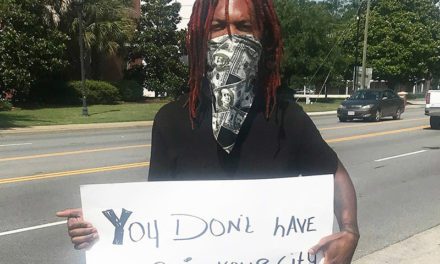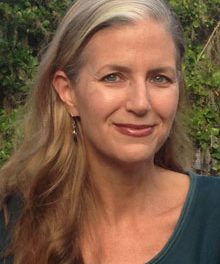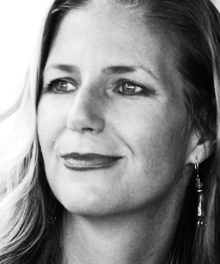 By Margaret Evans, Editor
By Margaret Evans, Editor
It was Ash Wednesday morning, and I was chatting (virtually) with an out-of-town filmmaker friend, somebody I’ve known for years through the Beaufort International Film Festival, which had wrapped a few days earlier. We were debriefing.
We agreed that BIFF had been like an extended Mardi Gras, and now we were both staring Lent hard in the face. For my friend, that meant no more drinking and a return to serious exercise. For me, it meant heading to church that night for the imposition of ashes, and then . . . what? I hadn’t really thought about it.
I’d been too busy worrying about the coronavirus and the presidential election and our divided nation and our post-truth culture and my overflowing inbox… and a whole host of nagging concerns I’d shoved to the back of my mind during BIFF, only to find they’d metastasized in the interim. (This was especially true of the coronavirus and my inbox.)
I sat thinking about that for a while. My worry. My anxiety. Heck, let’s call it what it is: my fear. Here it was the first day of Lent, and I’d been too consumed by my low-grade, steadily percolating fear to even consider what I might give up for the coming 40 days. The holy season of Lent literally hadn’t crossed my mind.
But now that it had, an idea was forming – a nebulous notion on the edge of my consciousness that I couldn’t quite wrangle into language… until I did. What if I tried actually giving up those things? Worry? Anxiety? Fear?
I mentioned the idea to my husband later, and he laughed, saying, “Good luck with that!”
“What?” I asked. “You think it’s a stupid idea?”
“It would be like you trying to give up wine,” he replied. “It just seems ridiculous.”
He had a point. Actually, this would be even harder than giving up wine, or dark chocolate, or Facebook – all things I’ve tried in the past, with varying degrees of success – because this would be attempting to “give up” a part of myself. To delete part of my personality. A fairly substantial part.
What would it feel like to stop imagining worst-case scenarios? (My little sister had a health scare a couple of weeks ago, and my mind reeled into the stratosphere.) How would it feel to stop obsessing about our upcoming trip to central Europe – should we or shouldn’t we travel to visit our exchange student daughter with the coronavirus in play!? – and just “wait and see” as information unfolds? How would it feel to stop fretting over the rupture in our country, the rising hatred between Americans? What if I just went about my business, in my little corner of America, as lovingly as possible… and let it go? In my writing life, what if I stopped worrying that people won’t like me, and just wrote truthfully, from the heart, letting the chips fall where they may?
What would that all feel like?
In old-time Christian circles, they call it stepping out on faith. And what it feels like… is trust. Radical trust.
At least, that’s what I imagine it feels like. I’ve never tried it. Not really.
I’m not talking about that child-like trust that some people manage to maintain against all odds and evidence – the belief that if they just have enough faith, just pray hard enough, God will protect them from all harm. I couldn’t muster up that kind of trust even when I was a child, and I sure can’t do it now. I’m talking about something different, a complete shift of perspective – from temporal to eternal. I’m talking about trusting that no matter how bad things are here and now, God is with us. And he loves us, because he is love. And ultimately, everything will make sense. I’m talking about trusting that, in the end, as the mystic Julian of Norwich envisioned, “all shall be well, and all shall be well, and all manner of thing shall be well.”
If I believed that – if I truly, deeply did – my fears and anxieties and various obsessions would melt away. I know, because sometimes I do believe that. But only sometimes, when I’m in the right head space. Singing a soulful anthem with my choir… Reading just the right scripture passage… Sitting on my patio at dusk, watching the birds gather for vespers at my feeders…
How would it feel to live in that belief? Every minute of every day? No fear, only trust?
I ran this idea by my filmmaker friend – someone who, like me, is trying to be a Christian while also being a “creative” – and he said, “I think anxiety comes with the territory… of being smart and loving and honest about life.”
My friend may be right. It may be particularly difficult to ditch anxiety while cultivating those qualities that matter to me as a writer and, well, a human being – qualities like awareness, honesty, love.
Consider this little story. Many months ago, I went to my doctor complaining of some inexplicable aches and pains. He put me through a battery of tests and they all came back negative.
“Do you suffer from anxiety?” he asked me at the follow-up.
“Every single day,” I laughed. “But let’s talk about my achy shoulders and tingly fingertips, shall we.”
Apparently, he was not just making small talk. He wanted to know if I’d ever been diagnosed with anxiety. “No, but I’ve never been ‘diagnosed’ as a middle aged white woman, either,” I said. “Some things are just obvious. What’s your point?”
I guess he thought there was a connection. Like, maybe my shoulders would stop aching if the weight of the world weren’t always on them.
He told me to take Vitamin B-12 and wrote me a prescription for anxiety medication. I asked about possible side effects. He said the pills made some people feel a little “flat” but would definitely take the edge off.
The anxiety meds are in my cabinet, unopened. I’m a writer. I can’t afford to feel flat; I need my edge. For now, I will not be taking the pharmaceutical route to an anxiety-free existence. My shoulders will just have to ache.
(For the record, the B-12 did stop the tingling.)
Maybe instead of trying to “give up” fear-based fretting and fuming, I will pursue that end by “taking up” that radical trust I mentioned. No, not trust in politicians or talking heads or even the medical community. Trust in God. Frankly, when I look at all the institutions I once trusted to take care of things (the government) and tell me the truth about world (the media), I’m increasingly disillusioned. It feels like all the adults in the room have been unmasked as frauds, nobody really knows what to do about anything, and “truth” is a relative term.
So why not go all in with God? What have I got to lose? It couldn’t hurt and it might just help. In fact, it might change everything.
So this is me, layin’ down my burdens, down by the riverside. They’re on you now, God. I’m trusting you to carry them. To carry us. I really mean it this time.
Readers, I’ll let y’all know how my shoulders are doing after Easter rolls around. Till then, keep calm and wash your hands.





